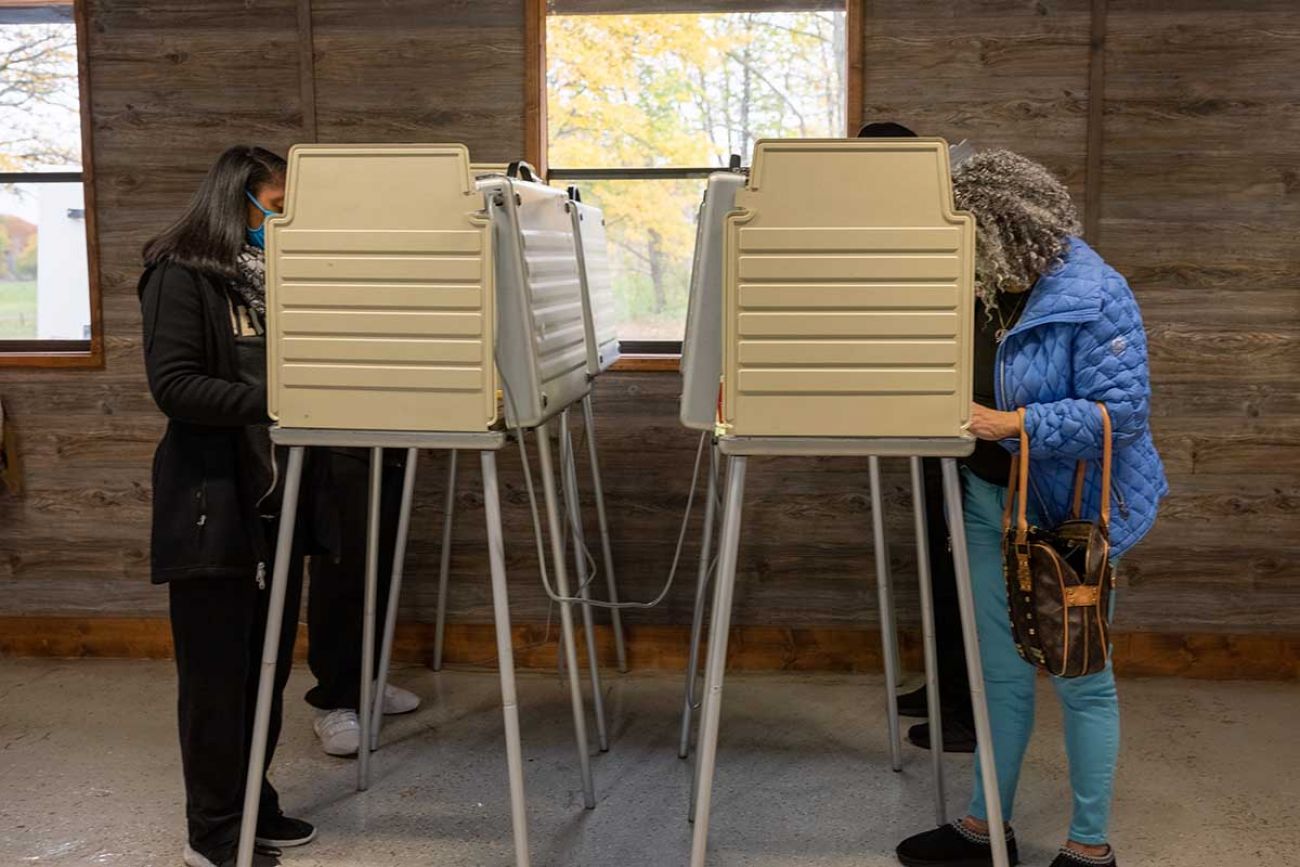Poll: Michigan Dems more alarmed about nation, more excited to vote in November

There is a stark enthusiasm gap among Michigan voters in a new poll, which may be good news for Democrats and frightening news for Republicans.
Voter enthusiasm is high overall in Michigan, possibly because Michigan residents have a lot to vote for: On the ballot will be the election of a U.S. senator, the governor, every seat in the Michigan House and Senate, and various ballot proposals including the legalization of recreational marijuana and, possibly, the creation of a nonpartisan redistricting commission.
But a higher percentage of Michigan Democrats say they are certain to vote than Republicans, according to a poll from PRRI (Public Religion Research Institute), a Washington, D.C. nonpartisan organization that conducts public opinion surveys. The group surveyed several Midwest states examining voters engagement headed into the 2018 midterm elections. The poll of 595 Michigan residents was conducted June 6 to 18 and had a margin of error of 5.1 percent.
Related 2018 Michigan election stories:
- Where do they stand? The governor candidates on their plans for Michigan
- Where Michigan governor candidates stand on taxes, spending
- Business groups split over Michigan Republican governor candidates
- Michigan Democrats running for governor strike similar policy goals
- Two Michigan Libertarian governor candidates walk into a bar…
- Old divisions, new blood: The Michigan GOP in the era of Trump
- Friction among Michigan Dems might pose the biggest threat to victory in November
- Do Michigan Republican candidates support Trump? Let us count the ways
- I read the memoirs of Michigan governor candidates so you don’t have to
Democrats in particular, fueled at least partly by anger over the nation’s direction, are itching for the chance to vote, according to the poll’s findings. In Michigan, 70 percent of Democrats said they are definitely going to vote, compared with 56 percent of Republicans.
That’s a dramatic contrast with the nation as a whole. In the national survey, Republicans were slightly more enthused to vote than Democrats, 59 percent to 56 percent.
“Michigan is anomalous. It has the widest (enthusiasm) gap of any state in the Midwest. It’s a pretty stark gap.” — Daniel Cox, Director of Research, PRRI public opinion firm
Historically, Republicans are more enthused to vote than Democrats in midterm elections, said Daniel Cox, PRRI’s Director of Research. “Michigan is anomalous,” Cox said. “It has the widest (enthusiasm) gap of any state in the Midwest. It’s a pretty stark gap.”
Among Michigan respondents, 54 percent said they planned to vote for a Democrat in their state district, 43 percent said they were voting Republican.
Even starker: 84 percent of Democrats said the country is on the wrong track; 68 percent of Republicans said the country is headed in the right direction.
“In midterms, usually the people who are most agitated are the folks who turn out,” Cox said. “That’s what happened in 2010 when the Tea Party movement started. That was a group that was really unhappy. This year the people who are most unhappy are young. Typically they are the ones we don’t see turn out in mass, but we could see this break the pattern.”
If that enthusiasm is matched in the November election, it could foretell a sea change in governance. Michigan currently has a Republican governor and Republican majorities in the House and Senate. Two Republican members of Michigan’s seven-member, partisan-affiliated Supreme Court also must face voters this year.
The survey of Michigan residents also shows strong majorities favoring efforts to make it easier to vote, and expressing concern that the wealthy have too much influence in politics.
Among respondents of color, 52 percent said voter disenfranchisement is a major problem, while 31 percent of white respondents felt the same way.
The poll did find areas of agreement on issues with possible policy implications in the state. Seven in 10 said Michigan residents should be automatically registered to vote when they interact with the Secretary of State’s office, such as when they get a driver’s license. Six in 10 support same-day voter registration – meaning residents can register to vote and vote on election day. Those two issues are addressed in another proposal that may be on the ballot in November.
Some other findings:
- Money: Seven in 10 said the wealthy have too much influence in politics.
- Media bias: More Michigan respondents said media bias toward certain candidates is a major problem in elections (54 percent) than said the same about outside interference from outside governments (39 percent).
- Voter turnout: 68 percent said the number of people who don’t vote is a major problem. Several reasons people may not vote: 43 weren’t sure if Michigan allows people who aren’t fluent in English to vote (non-English speakers can vote), and 34 percent said those convicted of felonies in the past cannot vote (they can).
- Time to vote: One in nine Michigan residents said they or someone in their family were unable to vote in an election because they could not take time off work.
- Voter ID: Four times as many minority voters said they had been told they didn’t have the proper ID to vote than white voters (8 percent to 2 percent); 9 percent of non-white respondents said they had experienced being harassed while voting, compared with 4 percent of white respondents.
See what new members are saying about why they donated to Bridge Michigan:
- “In order for this information to be accurate and unbiased it must be underwritten by its readers, not by special interests.” - Larry S.
- “Not many other media sources report on the topics Bridge does.” - Susan B.
- “Your journalism is outstanding and rare these days.” - Mark S.
If you want to ensure the future of nonpartisan, nonprofit Michigan journalism, please become a member today. You, too, will be asked why you donated and maybe we'll feature your quote next time!

